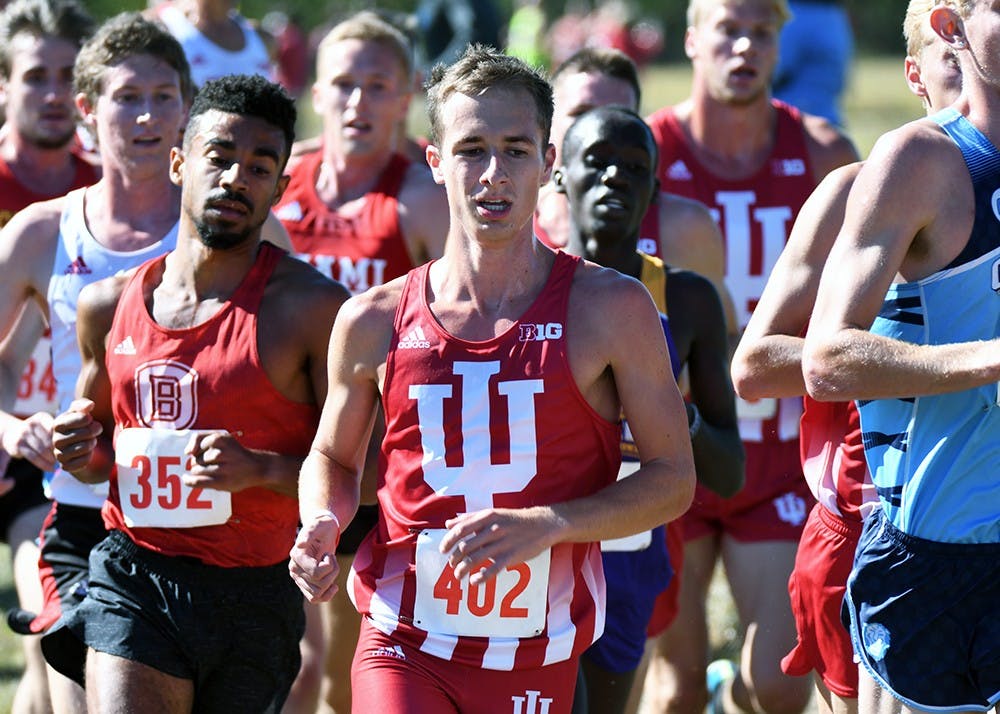Distance running at the collegiate level is a sport that seemingly never ends. IU athletes compete on the cross-country course in the fall, then transition to the indoor track in the winter before outdoor track in the spring. In the summer, they can let their minds reset before returning to training.
Due to COVID-19, many football players were left to train without pads or helmets, and the basketball team hasn’t been able to improve its chemistry on the court together. But for IU cross-country, athletes may continue their individual training while still social distancing.
Summer is a time when individuals may contact coaches for guidance or feedback. Coaches cannot have scheduled practices or require each athlete to report back to them. These guidelines are similar to those implemented when the coronavirus pandemic forced an early conclusion to spring sports.
IU head coach Ron Helmer said athletes have had transformational summers in the past. Last year, it was sophomores Bailey Hertenstein for the women’s team and Arjun Jha for the men’s team.
“The people who choose to really get on board and do this work the appropriate way and check in as needed, typically are the ones we can count on going forward,” IU head coach Ron Helmer said.
Last season, IU distance runners earned personal and team achievements as a result of their summer efforts. Both the men’s and women’s cross-country teams earned at-large bids to the NCAA Championships for the second straight year where they placed 13th and 19th, respectively.
In those races, Hertenstein and senior Kyle Mau were named All-Americans. Hertenstein placed 31st after placing 127th in 2018. Jha was the third Hoosier to cross the finish line for the men’s team behind Mau and junior Ben Veatch.
On March 12, the Big Ten announced the cancellation of all spring and winter athletic events due to the coronavirus pandemic. Since then, many athletes returned home and loosely followed their track and field training schedule. After what would have been the Big Ten Outdoor Championships on May 15-17, individuals began a four-week running regimen.
During this time, athletes may progress to running between three and six days a week for up to 50 minutes each day. Helmer gives them the freedom to run at their own pace based on how their bodies respond to the workout.
Without the assistance of numerous resources provided by IU athletics, including weight rooms, nutritionists and treatment facilities, Jha is running anywhere from four to eight miles each day at home. He plans to build up to nearly 100 miles each week following the team’s initial four-week schedule.
“I run with my brother two to three times a week, which is really nice because it helps get me out the door every day,” Jha said. “It makes it a little more fun, which you miss when you don’t have your teammates to run with.”
Jha, who is from Worthington, Ohio, runs on a shaded and often crowded bike trail near the Olentangy River that runs south into downtown Columbus.
After workouts, he stretches in his living room and attempts to replicate squats and deadlifts using his body weight. Jha also assists his family with grocery shopping so he can maintain a diet that balances protein and carbs, with emphasis on various fruits and vegetables to keep his energy levels high.
“If you’re willing just to go out and work as hard as you can with what you got, and make the most of what you got, then I think we have the ability to go forward,” Helmer said. “And in no way are we going to be held back.”
There’s no guarantee that fall sports return to Bloomington and the coronavirus pandemic may limit spectators, or even shorten each sport’s season entirely. But runners have been able to train almost as if nothing has changed.
“We’re going to do a better job than everybody else of preparing through this period of time and not making excuses for a lack of preparation,” Helmer said. “We’re going to come out at the other end in a much much better place. People are going to see by our results that we handled this better than most.”




